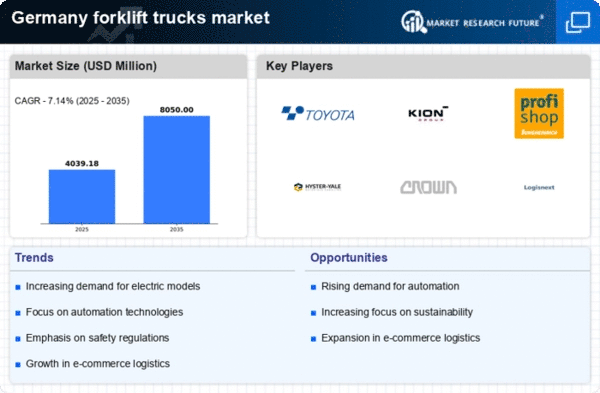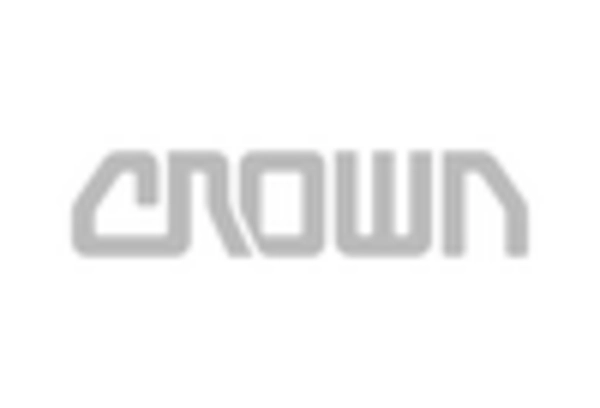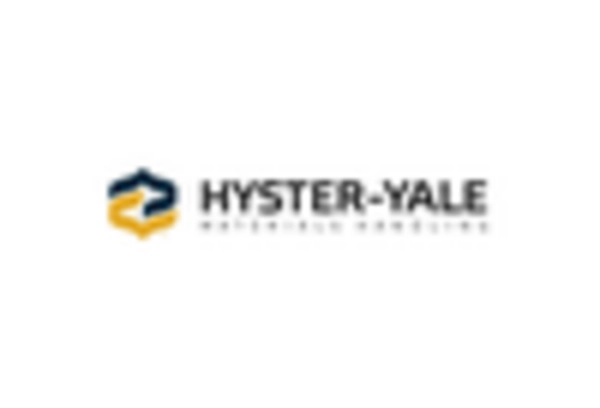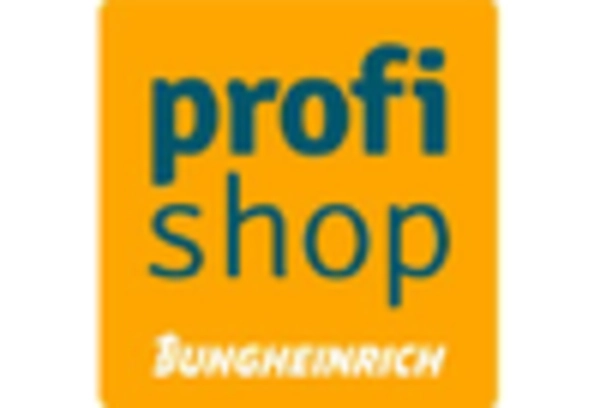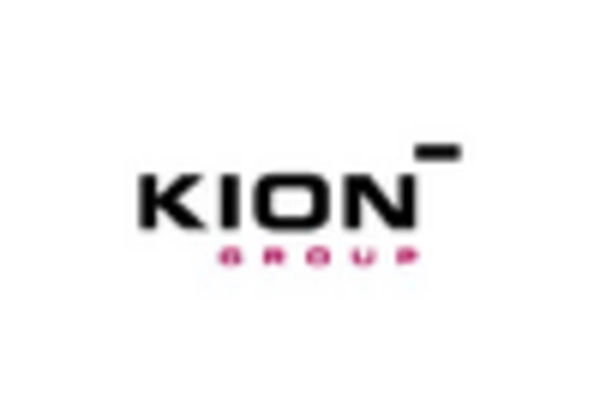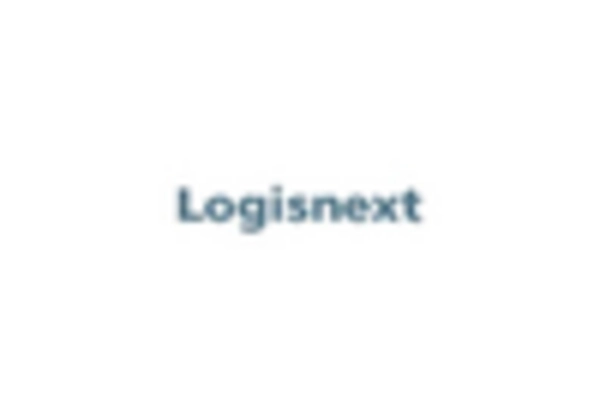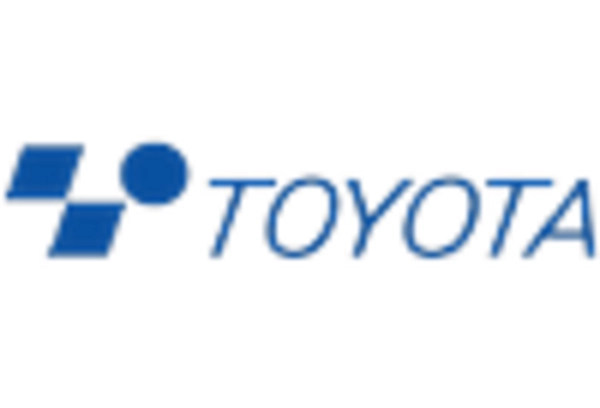Growth of the Construction Sector
The construction sector in Germany is experiencing robust growth, which directly impacts the forklift trucks market. With significant investments in infrastructure and residential projects, the demand for material handling equipment is on the rise. The construction industry is projected to grow at a CAGR of 3.5% through 2025, leading to increased requirements for efficient and reliable forklift trucks. This growth presents opportunities for manufacturers to develop specialized models tailored for construction applications. The forklift trucks market is thus positioned to benefit from this upward trend, as construction companies seek to enhance their operational efficiency.
Increased Focus on Safety Regulations
Safety regulations play a pivotal role in shaping the forklift trucks market in Germany. The government has implemented stringent safety standards to minimize workplace accidents and ensure the well-being of operators. Compliance with these regulations necessitates the adoption of advanced safety features in forklift trucks, such as automatic braking systems and enhanced visibility designs. As a result, manufacturers are investing in research and development to create safer models that meet these regulatory requirements. The forklift trucks market is thus evolving to prioritize safety, which not only protects workers but also enhances overall operational efficiency.
Rising Demand for Warehouse Automation
The forklift trucks market in Germany experiences a notable surge in demand due to the increasing emphasis on warehouse automation. As e-commerce continues to expand, companies are investing in automated systems to enhance efficiency and reduce operational costs. This trend is reflected in the projected growth of the logistics sector, which is expected to reach €300 billion by 2025. Consequently, the need for advanced forklift trucks that can seamlessly integrate with automated systems is becoming paramount. The forklift trucks market is adapting to these changes by offering models equipped with automation-friendly features, thereby catering to the evolving needs of warehouse operators.
Sustainability Initiatives in Logistics
Sustainability has emerged as a critical driver for the forklift trucks market in Germany. With increasing regulatory pressures and consumer demand for environmentally friendly practices, companies are seeking to reduce their carbon footprints. The German government has set ambitious targets for reducing greenhouse gas emissions, which has led to a shift towards electric and hybrid forklift trucks. This transition is supported by incentives and subsidies aimed at promoting cleaner technologies. As a result, the forklift trucks market is witnessing a growing portfolio of eco-friendly options, which not only comply with regulations but also appeal to environmentally conscious consumers.
Technological Advancements in Forklift Design
The forklift trucks market in Germany is significantly influenced by rapid technological advancements in design and functionality. Innovations such as improved battery technologies, enhanced lifting capacities, and ergonomic designs are reshaping the market landscape. For instance, lithium-ion batteries are becoming increasingly popular due to their longer life cycles and faster charging times. This evolution in design not only boosts productivity but also enhances safety in operations. The forklift trucks market is thus compelled to continuously innovate to meet the demands of modern logistics and warehousing environments, ensuring that operators have access to the latest advancements.


